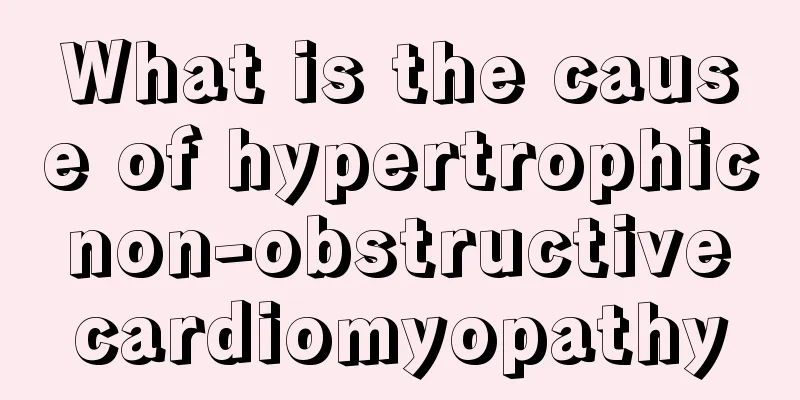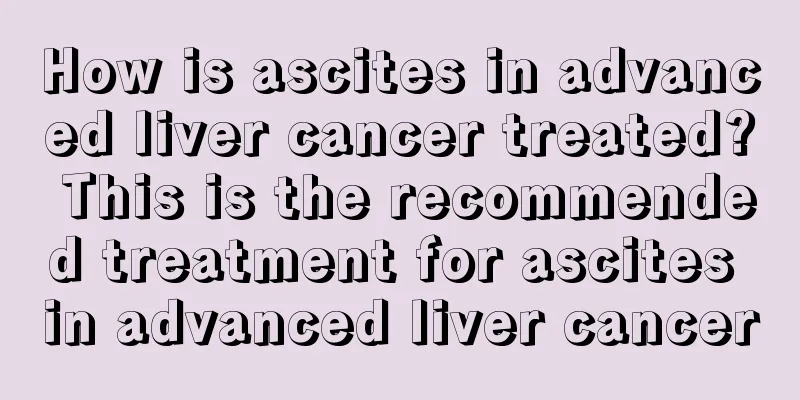What is the cause of hypertrophic non-obstructive cardiomyopathy

|
Many people do not understand the cause of hypertrophic non-obstructive cardiomyopathy. In fact, this disease is partly caused by genetic factors, and if there is an endocrine disorder, it can also lead to this disease. Common symptoms include difficulty breathing, fatigue, dizziness, heart failure, etc. 1. Causes The cause of this disease is not clear, but possible factors include: 1. Genetics Multiple people in a family may be affected, suggesting that it is related to genetics. Matsumori found that the detection rate of HLADRW4 in this disease was as high as 73.3%, while the detection rate in the control group was extremely low. The HLADR system is one of the genetic genes that regulates the immune response, indicating that this disease is related to genetics. 2. Endocrine disorders Many patients with pheochromocytoma have coexisting hypertrophic cardiomyopathy. Intravenous infusion of large amounts of norepinephrine in humans can cause myocardial necrosis. Animal experiments have shown that intravenous infusion of catecholamines can cause myocardial hypertrophy. Therefore, some people believe that hypertrophic cardiomyopathy is caused by endocrine disorders. 2. Clinical manifestations Onset is usually slow. About 1/3 has a family history. Symptoms usually begin before the age of 30. Men and women are equally affected. 1. Symptoms (1) Dyspnea often occurs after exertion. It is caused by decreased left ventricular compliance, increased end-diastolic pressure, and subsequent increased pulmonary venous pressure, resulting in pulmonary congestion. Mitral regurgitation associated with ventricular septal hypertrophy can aggravate pulmonary congestion. (2) Precordial pain often occurs after exertion and is similar to angina pectoris, but may be atypical. It is caused by increased oxygen demand from the hypertrophic myocardium and relatively insufficient blood supply from the coronary arteries. (3) Fatigue, dizziness and fainting often occur during activities. This is because the increased heart rate further shortens the diastolic period of the left ventricle, which already has poor diastolic filling, aggravating the insufficient filling and reducing cardiac output. When active or emotionally excited, the sympathetic nerves increase the contraction of the hypertrophic myocardium, aggravate the outflow tract obstruction, and cause a sudden drop in cardiac output, resulting in symptoms. (4) Palpitations are caused by decreased heart function or arrhythmia. (5) Heart failure is more common in late-stage patients. Due to decreased myocardial compliance, ventricular end-diastolic pressure increases significantly, followed by increased atrial pressure, and is often accompanied by atrial fibrillation. In late-stage patients, myocardial fibrosis is extensive and ventricular contractile function is weakened, making them prone to heart failure and sudden death. |
<<: Prognosis issues of hypertrophic cardiomyopathy
>>: How to effectively treat hypertrophic rhinitis
Recommend
Talk about the clinical symptoms of bladder cancer
In the early stages of bladder cancer, patients o...
Why do we grow white hair
Nowadays, people with white hair at a young age c...
Can I have a medical abortion at 50 days of pregnancy?
If you need an abortion when you are 50 days preg...
What are the dangers of long-term nasal congestion?
Many people are prone to nasal congestion for a l...
What are the exercises for the early stages of brain cancer?
Brain tumors include primary brain tumors that or...
What are the dangers of not having surgery for testicular cancer
Testicular cancer has become the biggest threat t...
What should I do if my neck becomes fibrotic after radiotherapy for nasopharyngeal carcinoma? Can it be cured?
The treatment of nasopharyngeal carcinoma general...
How to enhance immunity? Eat foods rich in vitamin C regularly
Immunity is very important for each of us. If the...
Things to note after surgery for lung cancer patients
After lung cancer patients have achieved complete...
How to care for lung cancer patients after surgery? Ten nursing methods for lung cancer after surgery
Lung cancer patients often need surgery, but if t...
What kind of people cannot sweat steam
I believe many people have heard of sweat steamin...
What food is good for liver cancer patients? Menu suitable for liver cancer patients
Liver cancer is very scary because the early symp...
How to check for esophageal cancer?
How to check for esophageal cancer? How to diagno...
How much does radiotherapy for nasopharyngeal carcinoma cost? What should I pay attention to in my diet after radiotherapy?
How much does radiotherapy cost for nasopharyngea...
For a diet with high blood lipids, these foods are essential
High blood lipids are a common disease with extre...









